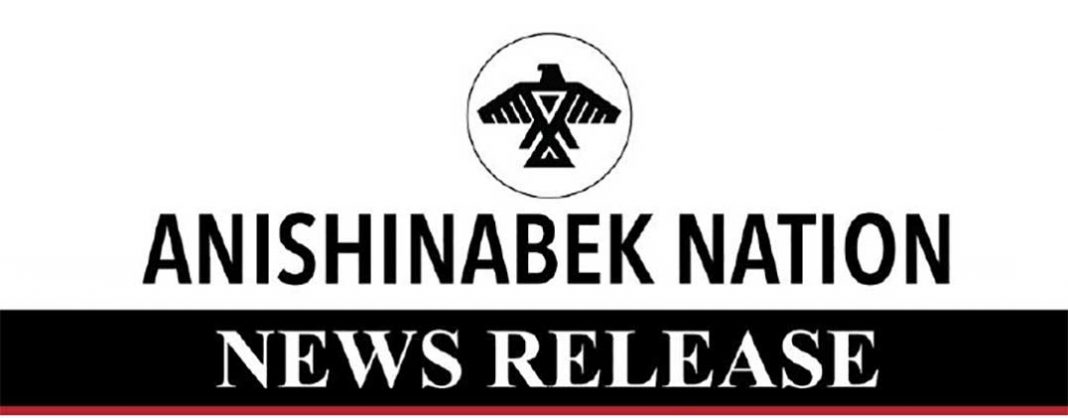|
ANISHINABEK NATION HEAD OFFICE (February 26, 2020) – Anishinabek Nation leadership continue to support the Wet’suwet’en Nation hereditary Chiefs who are protecting their traditional territory from encroachment. The support for the Wet’suwet’en across Turtle Island and globally has manifested from a place of solidarity and shared values. The events unfolding harken to September 1995 when protesters occupied the Ipperwash Park to underline their land claim and protest the destruction of the burial grounds. Unarmed protester Anthony “Dudley” George was killed by an Ontario Provincial Police sniper on Ipperwash Beach.
“From the Report of the Ipperwash Inquiry, it was found that there is a lack of recognition and respect of inherent, Aboriginal and treaty rights and how these exhaustive issues together pose a barrier to maintaining healthy relationships between Anishinabek First Nations, government, and police services,” says Anishinabek Nation Grand Council Chief Hare. “Frequently, Anishinabek people who exercise their treaty and Aboriginal and inherent rights find themselves under the scrutiny of not only police services, but by a public ignorant to the history of First Nations people and colonialism who have not received or sought education on First Nation treaty and Aboriginal rights.”
“We call on Prime Minister Justin Trudeau to meet with the hereditary Chiefs of Wet’suwet’en Nation and together, come to a peaceful and respectful resolve,” says Hare. “We understand that some of our citizens are participating in protests and we hold the health and safety of First Nation citizens in the highest regard. We urge citizens not to engage or dialogue with those making racist comments or who are exhibiting harassing behaviour.”
Other longstanding issues First Nations face include 25-year boil water advisories in Ontario, Canada’s decision to challenge the Canadian Human Rights Tribunal compensation ruling for First Nations children, youth and families, and annuities claims stalled in litigation.
“Canada has the responsibility to end discrimination in all federally-funded public services,” says Grand Council Chief Hare. “These aren’t just First Nation issues— these are human rights issues. In the spirit of reconciliation, we move forward with our minds and doors open to create dialogue in continued hopes that all Indigenous and non-Indigenous habitants of this land can coexist harmoniously and in peace.”
In the United Nations Declaration on the Rights of Indigenous Peoples, to which Canada is signatory to, Article 19 states: States shall consult and cooperate in good faith with the Indigenous Peoples concerned through their own representative institutions in order to obtain their free, prior and informed consent before adopting and implementing legislative or administrative measures that may affect them.
The Anishinabek Nation is a political advocate for 39 member First Nations across Ontario, representing approximately 65,000 citizens. The Anishinabek Nation is the oldest political organization in Ontario and can trace its roots back to the Confederacy of Three Fires, which existed long before European contact.
|





